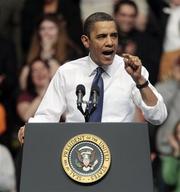NEW YORK ESPN marketers will fan out to bars in ethnic enclaves during World Cup matches to pass out schedules and posters, just one way the sports network is using the quadrennial event to build new audiences in both the U.S. and internationally.The network’s large presence of 300 staff members in South Africa for the soccer tournament could also be seen as a dry run to help a future Olympics bid.
Either ESPN, ESPN2 or corporate sister ABC is televising every one of the 64 scheduled matches in the first year the company has the American television rights to the tournament. ESPN leased rights to televise some games in 2006, covering some of the matches with announcing teams based in a Connecticut studio.
“We think it’s a chance to advance the notion that we are a global entity,” said John Skipper, the network’s executive vice president for content.One way to do that is to start at home. ESPN will promote itself heavily in areas where the network’s emphasis on American sports makes it less interesting to residents. The Greek enclave in Queens, N.Y., San Francisco’s Italian section, Boston’s Portuguese neighborhoods and Los Angeles’ Korean communities – all with fans keen on rooting on ancestral homelands – are among the areas that will get special attention.
Besides sending people to gathering places where the games are being watched, ESPN commissioned a South African artist to make posters honoring each of the participating countries, mixing historical and soccer themes. The U.S. poster, for example, commemorates George Washington crossing the Delaware, with soccer players standing in for his troops.
The network has equipped food trucks with a giant TV on the roof, passing out specialty foods from some of the participating countries in New York and Los Angeles, said Seth Ader, the network’s sports marketing senior director.Online and on ESPN Radio, the company will give fans the option of hearing broadcasts in different languages, including Chinese, German, Greek, Italian, Japanese, Korean and Portuguese.
In the U.S., Univision has the rights to Spanish-language broadcasts of the matches. Although ESPN can’t offer Spanish-language broadcasts of the matches, it is moving into the territory by offering 10 hours a day of studio-based Spanish content on its ESPN Deportes network.
Getting an identification as a destination for soccer fans “is a long-term business proposition for us,” Ader said. Showing the World Cup telecast can drum up interest in U.S.-based professional soccer, which ESPN has rights to televise. World Cup soccer is also expected to be a draw for ESPN’s mobile business, too.
Soccer is also key to ESPN’s efforts to expand in international markets. The network made a big move last year by purchasing the rights to show some games in England’s Barclays Premier League.”In order to get a foothold in a number of international markets, they need to get soccer content,” said David Joyce, an analyst for Miller Tabak & Co.
Having a home team helps ESPN but isn’t vital to success, the network’s executives believe. ESPN’s experience covering the European championship in 2008 was instructive: There was no U.S. team for which to root, but ethnic pockets of fans helped the network draw a strong audience, Ader said.
For ESPN, there’s another important audience that will be watching. Following NBC’s coverage of the 2012 Summer Olympics in London, rights to future games are up for grabs, and ESPN is expected to be interested. A strong performance at the World Cup could show doubting Olympics officials that ESPN would be up to covering a large, multifaceted event.
“I never think of this as a dress rehearsal,” ESPN’s Skipper said. “We think this entity is special enough as itself to merit this sort of attention. If there were no such thing as the Olympics, we would do the same thing. Having said that, we do believe this will demonstrate to people what we can do with a big quadrennial event. That’s an ancillary benefit.” (AP)


